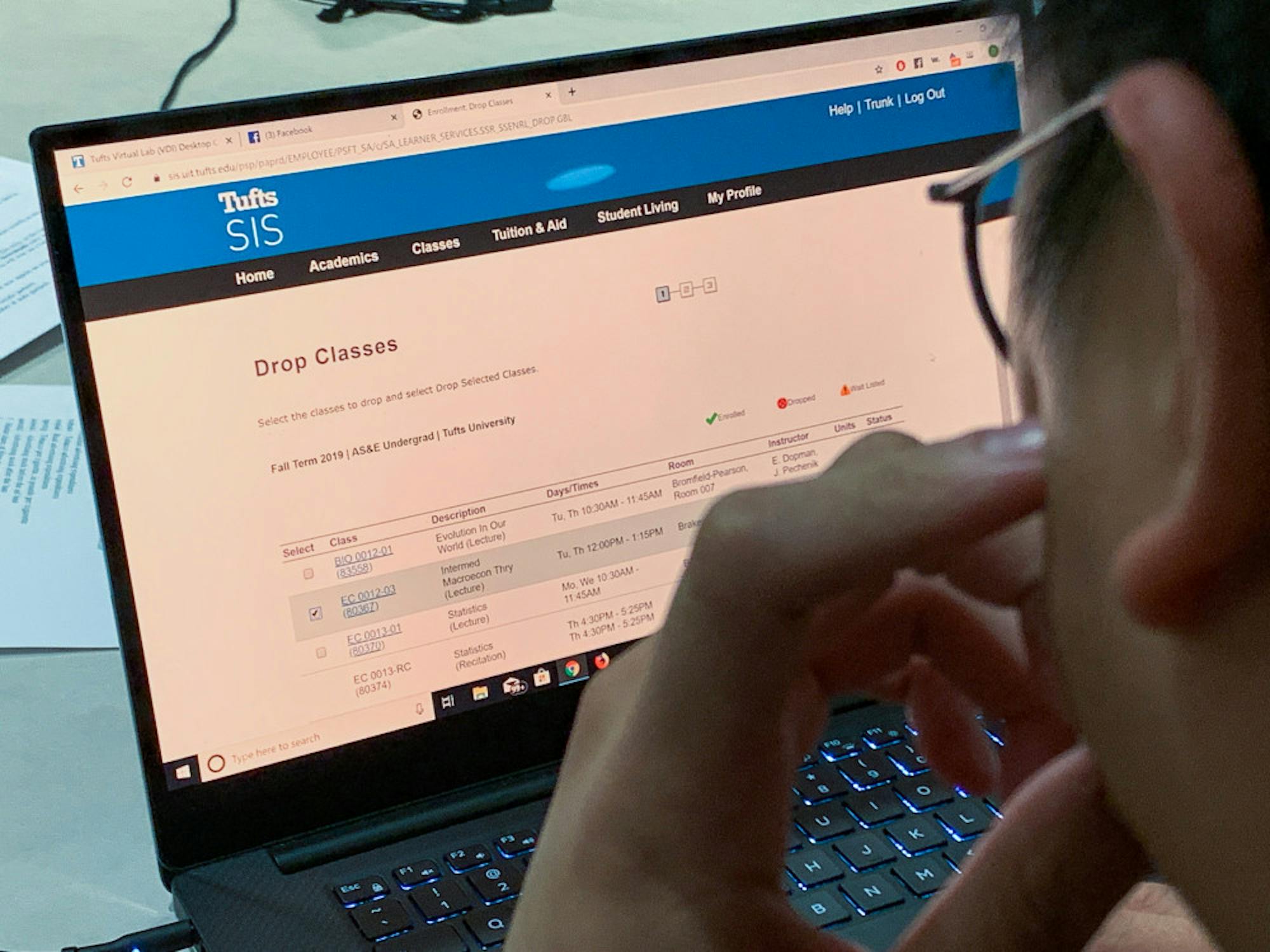Tufts announced a change to the drop and withdrawal deadlines in an email from the Associate Deans of Undergraduate Advising on Sept. 4, The deans moved the drop deadline for first-year students forward from the 10th week of the semester to the fifth week starting next semester and adjusted the withdrawal deadline for all undergraduate students from the last day of classes to the 10th week of the semester, effective this fall. The change to the withdrawal deadline was prompted by a recommendation from the Mental Health Task Force, according to the email.
The process of adjusting the drop and withdrawal deadlines began summer 2017 when the Working Group within the Mental Health Task Force conducted a review of Tufts' policies to gauge their impact on student mental health, according to a statement from Jennifer Stephan, senior associate dean of undergraduate advising in the School of Engineering and co-chair of the Undergraduate Working Group. The group was moderated by Patrick Collins, executive director of public relations for Tufts.
The working group concluded that the previous withdrawal deadline hindered students' progress in their courses, and suggested that an earlier deadline would help students stay on track.
“Some students will keep plugging away at a class where they're doing badly, putting in far too much effort and harming their other classes,” Anne Mahoney, senior lecturer in classical studies and chair of the Educational Policy Committee (EPC), told the Daily in an email. “If they have a reason to drop it sooner, they're more likely to be able to recover in the remaining classes."
Stephan emphasized that taking stress away from students was central to the decision.
“The intent of moving the withdraw deadline forward is to encourage students to seek help sooner, while there are more options for completing some of their courses, and also to provide stress relief sooner,” Stephan wrote in the statement provided to the Daily in an email.
The university had not recognized the impact of the withdrawal deadline until the Mental Health Task Force suggested the date be moved forward, according to Mahoney.
“Until the task force looked at students' mental health in general, the faculty hadn't really considered whether our unusual withdraw policy could be harmful,” Mahoney said. “Once the task force pointed out that what looked generous really wasn't doing students any favors, we agreed and corrected the policy.”
The change to the drop deadline for first-year students in their second semester was made with the same concerns in mind.
“This is, once again, to encourage students to make decisions and, as required, get help sooner — but we all agreed that it makes sense to let students in their first semester in college have a bit more time,” Mahoney said.
The Undergraduate Working Group collaborated with the advising deans in spring 2018 to review academic and administrative policies, according to Stephan, and met with the EPC to discuss the proposed changes to the drop and withdrawal deadlines. The proposed changes were then announced to university faculty on Sept. 12, 2018, for a final decision; only faculty can change policies on Tufts' Bulletin, Mahoney explained.
Jacklyn Varela, communications and project administrator for the Office of the President, wrote in a statement moderated by Collins that the Mental Health Task Force was comprised of students, faculty and staff, and was co-chaired by University President Anthony Monaco and Psychiatrist-in-Chief of Tufts Medical Center Dr. Paul Summergrad.
Students had the opportunity to provide input on the proposal for an earlier withdrawal date before it reached the EPC, according to Mahoney.
In addition to the Undergraduate Working Group, the Mental Health Task Force also formed a working group for graduate and professional students and a Models of Care group that examines clinical services available to students on the Medford/Somerville and Fenway campuses.
The Mental Health Task Force plans to release a report in October with additional academic and administrative policy recommendations, Varela told the Daily.
“At the undergraduate level, the Task Force paid significant attention to strengthening policies and practices to allow for more opportunities to engage students with resources and support structures by reinforcing mechanisms that encourage help seeking, along with early identification and opportunities for intervention,” Varela wrote of the impending report.
The graduate schools in Arts and Sciences and Engineering are considering making the same adjustments to their drop and withdrawal policies, according to Mahoney.
Tufts changes drop, withdrawal deadlines with input from Mental Health Task Force

A Tufts student considers dropping a course in a Tisch Library quiet study area.





